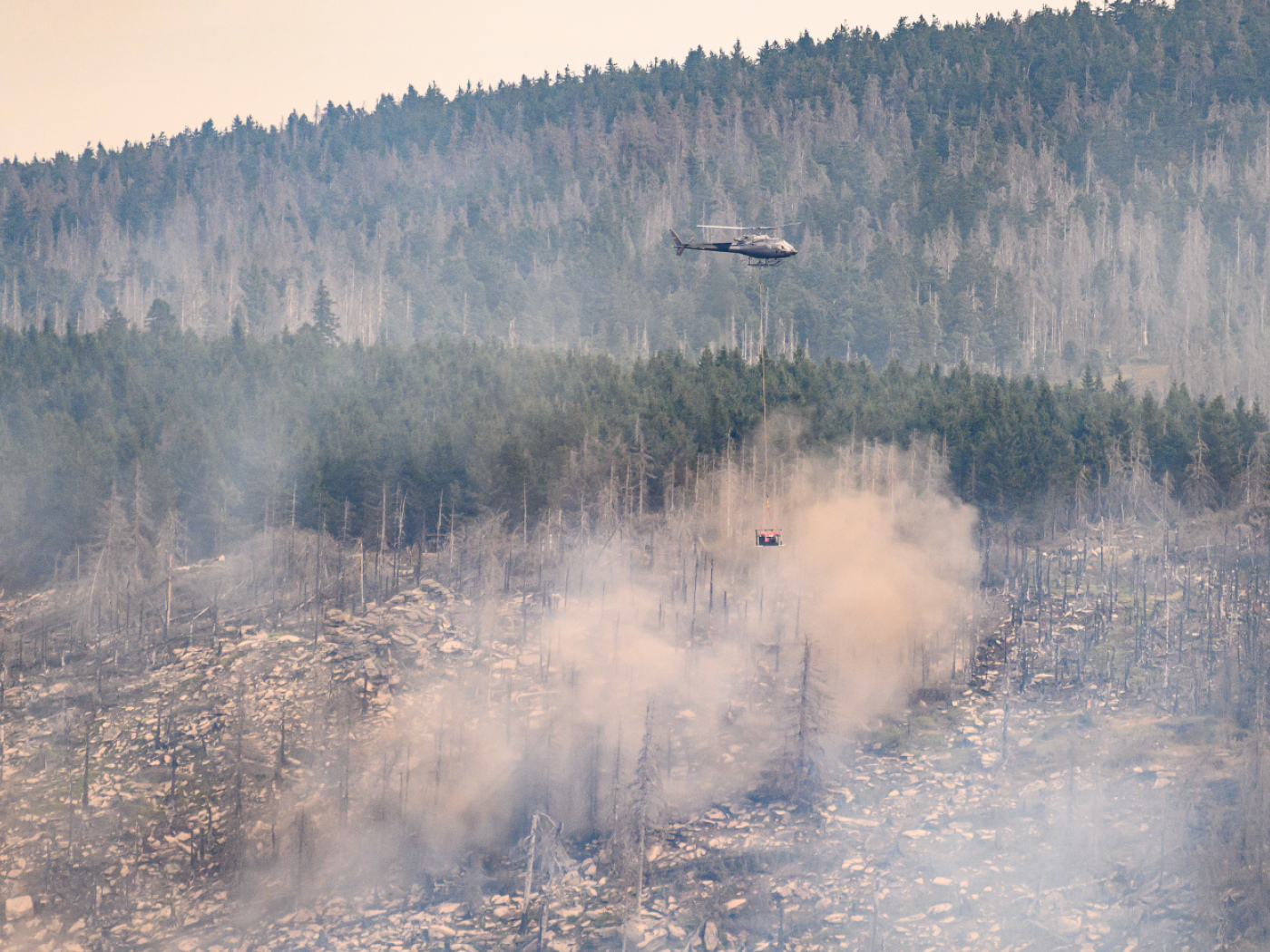
Climate change magnifies forest fires and harms health

Increased heat and droughts means climate change increases the effects of large forest fires. This damages not only the environment and nature, but also increasingly people's health owing to the associated air pollution.
+Get the most important news from Switzerland in your inbox
Climate change has led to more burnt areas in recent decades, according to a study published in the scientific journal Nature Climate Change, in which the federal technology institute ETH Zurich was involved.
From 2003 to 2019, almost 16% more forest burned compared to a scenario without climate change, writes the team led by Seppe Lampe from the Free University of Brussels. According to the researchers, Australia, South America, western North America and Siberia were particularly affected.
Overall, the area burned decreased by 19% during this period. However, this is due to the fact that more and more forest areas were used for agriculture or other purposes. As a result, there are fewer areas that could burn.
+ What is your country doing to protect you from the impacts of climate change?
However, according to the study, global warming is causing particularly large areas to burn where fires do occur. Although heat and drought alone do not trigger fires, they make forests more susceptible to them and also ensure that the fires tend to be more severe.
“Our study shows that once fires occur, the impact of climate change becomes increasingly significant with drier and warmer weather conditions,” co-author Chantelle Burton from the UK Met Office Hadley Centre in Exeter is quoted as saying in a press release on the study.
More fires, more air pollution
In a second study in the same journal, a group led by Chae Yeon Park from the Japanese National Institute of Industrial and Science Technology in Tsukuba investigated how such fires damage health. This is because fires also produce smoke and thus fine dust, which can penetrate deep into the lungs. According to the study, the number of deaths caused by fire-related air pollution worldwide rose from around 46,400 per year in the 1960s to around 98,750 in the 2010s.
+ Why older women are hit hardest by deadly heatwaves
Based on the results of the first study, in the 2010s more than 12,500 deaths per year due to air pollution caused by fires were attributed to climate change. In the 1960s there were around 670 deaths per year, the group calculates. Regions such as South America, Australia and Europe were particularly affected.
“Our research makes it clear that climate change increasingly poses a threat to public health, as smoke is also affecting densely populated areas more frequently,” explains lead author Park.
However, the study also mentions exceptions to the trend: in some regions, such as South Asia, a climate change-induced increase in humidity led to fewer deaths from fires.
+ Swiss think it’s vital that other people reduce CO2 emissions
The analysis is an epidemiological study. Epidemiological studies determine the statistical relationship between risk factors such as particulate matter pollution and health effects such as cardiovascular diseases.
Such studies show correlations, not causalities, so they do not necessarily say anything about causal relationships. The result is a statistical estimate, not an exact indication of clinically identified deaths. The actual value may be higher or lower.
Translated from German by DeepL/ts
This news story has been written and carefully fact-checked by an external editorial team. At SWI swissinfo.ch we select the most relevant news for an international audience and use automatic translation tools such as DeepL to translate it into English. Providing you with automatically translated news gives us the time to write more in-depth articles.
If you want to know more about how we work, have a look here, if you want to learn more about how we use technology, click here, and if you have feedback on this news story please write to english@swissinfo.ch.

In compliance with the JTI standards
More: SWI swissinfo.ch certified by the Journalism Trust Initiative




























You can find an overview of ongoing debates with our journalists here . Please join us!
If you want to start a conversation about a topic raised in this article or want to report factual errors, email us at english@swissinfo.ch.